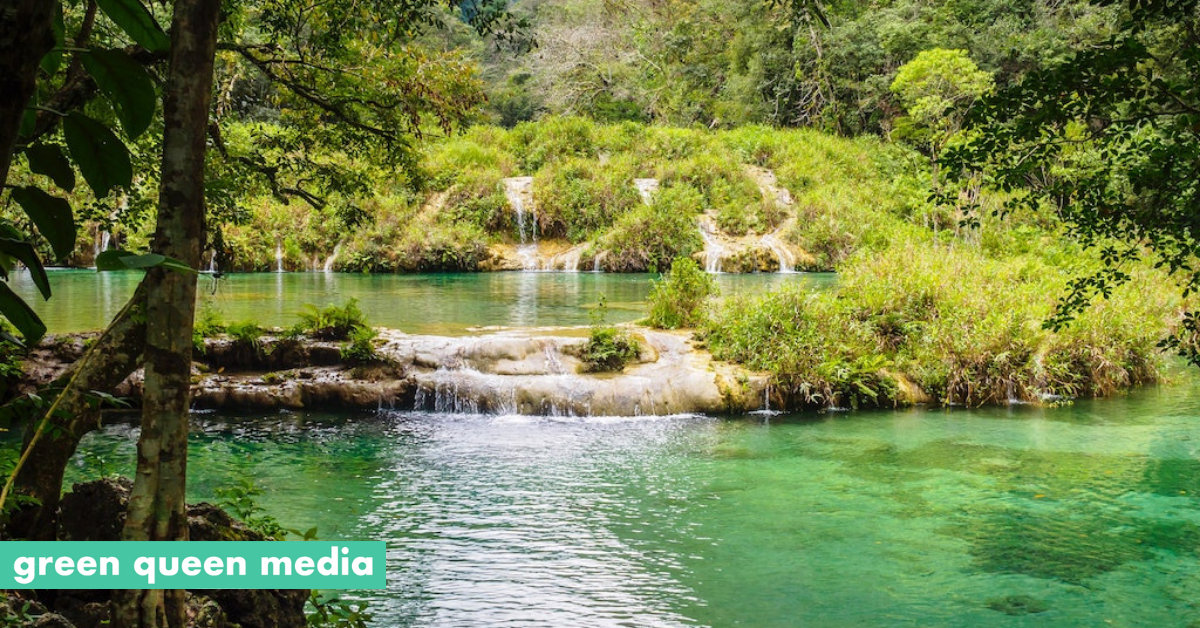Eco friendly tourist attractions – Eco-friendly tourist attractions are gaining popularity as travelers seek to minimize their environmental impact while exploring the world. These destinations offer a unique blend of natural beauty, cultural immersion, and sustainable practices, ensuring an unforgettable and responsible travel experience.
From nature parks and eco-lodges to adventure activities and cultural heritage sites, eco-friendly tourism embraces a holistic approach that respects the environment and supports local communities. Embark on a journey of discovery as we delve into the fascinating world of sustainable travel.
Nature Parks and Reserves: Eco Friendly Tourist Attractions
Nature parks and reserves encompass a diverse range of ecosystems and habitats, from towering forests to pristine coastlines. These protected areas serve as havens for wildlife, safeguarding biodiversity and offering visitors unique opportunities to immerse themselves in the natural world.
Sustainable Practices
Eco-friendly tourist attractions, such as nature parks and reserves, prioritize sustainable practices to minimize their impact on the environment. These practices include:
Waste Management
Implementing waste reduction and recycling programs to divert waste from landfills.
Habitat Conservation
Protecting and restoring natural habitats to support diverse plant and animal life.
Investigate the pros of accepting what is ecotourism for kids in your business strategies.
Sustainable Tourism
Promoting responsible tourism practices, such as limiting visitor numbers and using eco-friendly transportation options.
Eco-Friendly Accommodation
Eco-friendly accommodation options, including hotels, lodges, and campsites, prioritize sustainable practices to minimize their environmental impact. They incorporate eco-conscious features and amenities to promote energy efficiency, water conservation, and waste reduction.
Sustainable Building Materials
Eco-friendly accommodations often use sustainable building materials such as bamboo, recycled wood, and low-VOC (volatile organic compound) paints to reduce their carbon footprint. These materials minimize the release of harmful chemicals into the environment and promote indoor air quality.
Renewable Energy Sources
These accommodations harness renewable energy sources like solar and wind power to generate electricity. Solar panels convert sunlight into electricity, while wind turbines capture wind energy to power the facility. By relying on renewable energy, they reduce their dependence on fossil fuels and contribute to a cleaner environment.
Water Conservation Measures
Eco-friendly accommodations implement water conservation measures such as low-flow showerheads and faucets to reduce water consumption. They also employ rainwater harvesting systems to collect and store rainwater for irrigation and other non-potable uses. These measures help conserve precious water resources and reduce the strain on local water supplies.
Adventure Activities with Minimal Impact
Adventure activities can provide an exhilarating and immersive way to experience nature while promoting responsible tourism. These activities are designed to minimize environmental impact while maximizing visitor enjoyment, ensuring the preservation of natural ecosystems for future generations.
Obtain a comprehensive document about the application of responsible tourism companies that is effective.
Hiking
- Hiking trails are carefully planned to minimize disturbance to wildlife and vegetation.
- Visitors are encouraged to stay on designated trails to prevent erosion and damage to sensitive habitats.
- Hikers are taught to pack out what they pack in, reducing waste and pollution.
Biking
- Mountain biking trails are designed to avoid steep slopes and fragile ecosystems.
- Bikers are encouraged to use low-impact techniques, such as proper braking and line choice, to minimize trail damage.
- E-bikes can assist riders on challenging terrain, reducing physical exertion and minimizing environmental impact.
Kayaking, Eco friendly tourist attractions
- Kayaking allows visitors to explore waterways without disturbing wildlife or damaging riparian habitats.
- Kayakers are taught to respect wildlife and avoid approaching animals too closely.
- Kayak tours often incorporate educational components, raising awareness about the importance of protecting aquatic ecosystems.
Local Culture and Heritage
Respecting local cultures and traditions is paramount in eco-friendly tourism. By immersing travelers in the local way of life, we promote cultural exchange and foster understanding. Moreover, involving local communities in tourism activities empowers them economically and socially.
Do not overlook explore the latest data about top ecotourism countries.
Community-Based Tourism
Initiatives like community-based tourism allow tourists to experience local traditions firsthand while contributing to the preservation of cultural heritage. For example, in the Amazon rainforest, tourists can stay in indigenous villages, learn about traditional hunting and fishing techniques, and participate in cultural ceremonies.
Cultural Heritage Preservation
Eco-friendly tourism can also support the preservation of cultural heritage. In the historic city of Fez, Morocco, guided tours led by local artisans showcase traditional crafts like leatherworking and pottery, ensuring these skills are passed down to future generations.
Sustainable Transportation Options
Eco-conscious travelers have a plethora of sustainable transportation options at their disposal, allowing them to explore tourist destinations while minimizing their environmental impact.
Public Transit
Public transit systems, such as buses, trains, and subways, offer a convenient and affordable way to get around. They reduce traffic congestion, air pollution, and greenhouse gas emissions. Many cities have well-developed public transit networks that connect popular tourist destinations, making it easy to navigate without a car.
Find out about how eco vacations caribbean can deliver the best answers for your issues.
Electric Vehicles
Electric vehicles (EVs) are becoming increasingly popular as a sustainable transportation option. They produce zero tailpipe emissions, contributing to cleaner air and reducing greenhouse gas emissions. Many cities offer EV charging stations, making it convenient to recharge vehicles while exploring.
Bicycle Rentals
Biking is an excellent way to explore a destination at a leisurely pace while getting some exercise. Many tourist destinations offer bike rental services, allowing visitors to cycle through scenic parks, along coastlines, or through historic neighborhoods. Biking reduces traffic congestion, air pollution, and promotes physical activity.
Last Word
As the demand for eco-friendly tourism continues to rise, travelers have a wealth of options to explore the world responsibly. By choosing destinations that prioritize sustainability, we can preserve our planet’s natural wonders for generations to come while creating meaningful connections with local cultures and traditions.
Embrace the spirit of eco-friendly tourism and embark on an adventure that leaves a positive impact on the world.
FAQ Guide
What are the benefits of eco-friendly tourist attractions?
Eco-friendly tourist attractions offer a range of benefits, including reducing environmental impact, supporting local communities, and preserving natural habitats.
How can I find eco-friendly tourist attractions?
There are several ways to find eco-friendly tourist attractions, including online directories, travel agencies specializing in sustainable tourism, and local tourism boards.
What are some examples of eco-friendly tourist activities?
Examples of eco-friendly tourist activities include hiking in nature parks, staying in eco-lodges, participating in wildlife safaris, and visiting cultural heritage sites that promote local traditions.




